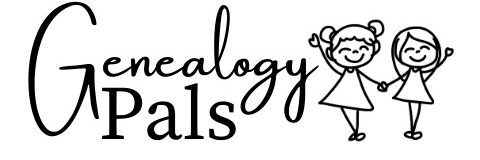While doing genealogy research online, sometimes I’ll still hit a brick wall – because as fun as online research is, genealogy is still a study based on archives and books. So, who buys genealogy books (references and/or published history books) – and where do we find them?
Genealogy books are used and purchased by genealogists of all levels, family historians, students, and historians. Genealogy books may be textbooks, journals, memoirs, a list of family names, fill-in-the-blank family charts, etc. These books are found at libraries and specialty book stores worldwide if you know where to look.
Ready to find, buy, or sell some specialty genealogy books? Keep reading to find out where to go!

Genealogy Books: What They Are (and what they are NOT)
Before we talk about where to find genealogy books, let’s discuss what genealogy books are (and are not). This way, you’ll better understand where to find them.
When someone says they’re looking for a genealogy book, it’s important to find out what kind of book they’re actually talking about. That’s because there are several types of genealogy books. Here are the kinds I can think of just off the top of my head:
- Textbooks or tutorials (that teach you how to do genealogy)
- Research guides
- Journals (professional or personal)
- Memoirs
- Those old-school, super-thick genealogy books that are self-published by families
- The even older-school, super-thick genealogy books that your grandparents filled out by hand and assembled into a self-binding book (that’s more like a fancy folder)
- Family genealogy books that are filled out with family information – family names, personal histories, etc
- Fill-in-the-blank style books (baby books, picture books, etc)
- A personal family tree or history book
In other words, there’s no set definition for a genealogy book. There’s a huge variety of what they are – and that can include a lot more books than most people initially think of. I may not like to think of my personal journal as a genealogy book, but let’s face it – it could be one someday in the future.
Next, let’s talk about who uses genealogy books – because who uses them also affects where you can find them.
Who Uses Genealogy Books
Anybody and everybody use genealogy books, depending on what type of book you’re talking about. Okay, so not everyone will use a genealogy textbook to learn better research techniques. But if you’ve got a personal journal or read a cool memoir, you’ve been using a genealogy book.
Even so, genealogists of all levels (from hobbyists to professionals) will reference the following genealogy books.
| Type of Genealogy Book | Example of Use |
|---|---|
| Research methodology textbook | Genealogists who want to learn better research techniques |
| Genealogy tutorials | Students or beginners who want to understand genealogy better |
| Journals and memoirs | Readers interested in the lives of others, including their ancestors |
| Fill-in-the-blank memory books | Anyone who wants to learn more about the past of others or themselves |
| Others | Family historians who are looking for an avenue to share their findings, research, and stories with the world (or just their family) |
My kids love looking at memory books I’ve filled out. They also love looking at our digital photo slideshow screen that shows old pictures of our family – especially if they’re in the photo! Okay, so it’s not a physical book – but it’s still genealogy.
When to Use (Buy or Sell) Genealogy Books
So when do you use genealogy books? Well, it’s going to depend on your intent.
| Type of Book | When to Use | When to Buy or Sell |
|---|---|---|
| Research Books | When you need help learning more about history, research methods, or any time you need an expert’s guidance (but you don’t want to pay the expert to be there). | These books cost a good deal of money to buy; therefore, you may want to borrow them from a library or resell them when you’re done with them. |
| Reference Books | These are like the standard textbooks of a genealogist. They are research staples to use when you need help with a specific topic. | These are the books that, if you’re serious about genealogy, you will want to invest in good ones. You may want to consider borrowing several while deciding between them. |
| Fill-in-the-Blank Memory Book | Any time you want to record special memories, events, or experiences. | These don’t sell easily once filled in. Making and selling these (while blank) is a huge business model. |
| Journals and Memoirs | Any time you want to learn more about a specific person, event, or time in history. | These may be available at most libraries and stores, depending on the person you’re researching. |
| Family Genealogy Books | Use these any time you’re doing genealogy. | These are very difficult to find as a buyer. And please don’t sell yours. Digitize and share them with interested family members – and ask your family to share what books they have. |
In many cases, you’re probably not going to be buying or selling genealogy books, though. Odds are that what you need is available at the library or a family member has it.
If you can’t find what you need at your local regular library or local family history library, make sure you’re also checking FamilySearch.org’s free online digital library and Google’s free online book library.
If it’s not available at any of those places, then consider buying what you need from a bookseller.
Where to Buy and Sell Genealogy Books
Genealogy books can be pricey, so be warned. In fact, it’s best to check these resources for what you need BEFORE you try buying the book you need.
- Your local library
- Your local family history library
- FamilySearch.org’s free online library (click here to access it)
- Ancestry.com’s online resources and library
- Online library hubs like Digital Public Library of America, WorldCat, and Archive.org
- Google’s free online library (click here to go there now)
- The local school, college, or university library
- Specialty sites like mygenealogybooks.com, a large, traveling genealogy bookstore that buys and sells all sorts of genealogy-related books (both custom, one-of-a-kind, and mass-produced books). We ran into them at RootsTech 2020 and were blown away by the selection.
If what you need isn’t available at one of those free resource options, then you may want to look at buying from one of Breanne’s favorite genealogy booksellers. Let’s go with alphabetical order this time.
- Abebooks.com is a great place to find used books of all kinds.
- Amazon.com and its third-party resellers have a huge selection.
- Ebay.com also sells books – both new and used.
- Google books have a ton of options.
- Powells.com also has a good variety of books.
When you’re buying used books, please be careful to make sure that you’re getting the edition you want. A lot of used books being sold for cheap are that cheap because they’re out of date – and not the edition everyone is looking for!
On the other hand, when you’re selling genealogy books, these same resellers may be your best bet. For most books that are research or reference-based and aren’t handwritten, anyway!
If you are dealing with a handwritten memory book or a self-published family book, you may find better success reaching out to family members with an interest in genealogy. Even then, you may not get a lot of money for them. You may want or need to donate that book to a family member – or a local family history library – to keep it in circulation and as a resource for future generations.
How to Use Genealogy Books
Once you’ve got the genealogy book you want, it’s time to use it. So how do you use it? Well, again it’s going to depend on the book and your goals.
If it’s a memory book, you’ll probably want to start looking through it and see what catches your eye. Just keep in mind the information you are looking for and hope you find it. Odds are there isn’t a table of contents or an index to help you speed up the process, unfortunately.
However, if it’s a reference or research book, then you will probably have a table of contents and/or an index to help you find what you need. So look there for what you need first.
Then, if you want all of the information, go ahead and start reading the book. Or at least read the sections that interest you, right? Some of those research textbooks are crazy thick – and would take forever to read!
So if that’s the case, skim the book and look for the headings and sections that you need. Then, read those smaller sections more carefully. It’s like you’re back in school reading textbooks. Yay! 😛
In any case, find what you need and keep going. And if you need help? Ask us for ideas – or talk to your local family history librarian for help slugging through all that text. You can do this, friend.

